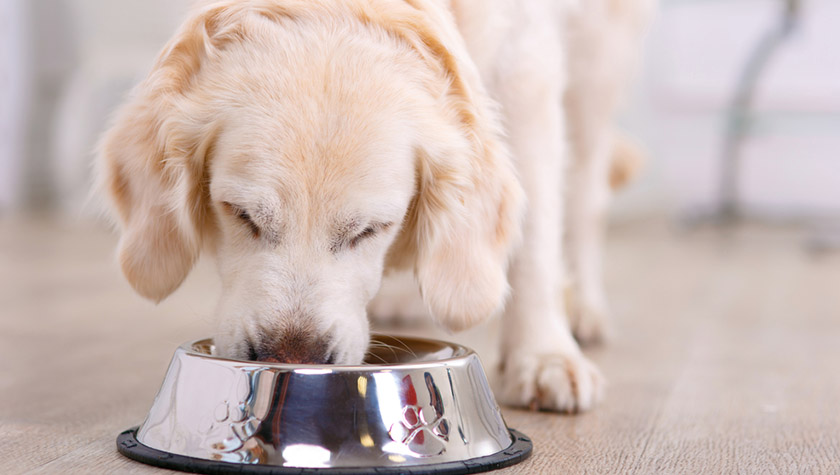Allergies in pets? Allergies don’t just affect people – pets can suffer from allergies, too. True food allergies aren’t as common in pets, but they do happen. In fact, approximately 20 percent of all dogs suffer from some type of allergy, such as flea, inhalant or food. It is important to understand the symptoms of dog allergies.
Food allergies, also known as food hypersensitivities, occur when the immune system overreacts to an ingredient in food, treating these ingredients like foreign invaders. These immune responses can be intensely uncomfortable producing symptoms that range from gastrointestinal and skin issues to bacterial infections. Food allergies, as opposed to environmental allergies, account for about 10 percent of all pet allergies and can occur at any time.
Since food allergies are acquired, a dog can suddenly become allergic to a food that he/she has eaten for years without any problems. This sudden, bad reaction to your dog’s familiar food can be quite alarming, but stay calm.
What are some common dog food allergies? Beef, chicken, soy, milk, eggs, corn and wheat are some of the most common food allergens reported in dogs.
Unlike inhalant allergies that are often seasonal, the signs and symptoms of food allergies are typically present year-round.
The most common signs and symptoms of food allergies in dogs include:
- Itchy skin (all over or just in a few areas)
- Excessive skin licking or chewing
- Red and inflamed skin
- Hair loss
- Skin infections
- Ear infections
Some dogs with food allergy symptoms may also develop gastrointestinal issues and other symptoms such as:
- Flatulence
- Increased bowel movements
- Vomiting
- Diarrhea
Food intolerance is another common issue in dogs and can often be mistaken for food allergies. Food intolerance occurs when a dog has difficulty digesting certain ingredients in their food, resulting in gastrointestinal symptoms such as diarrhea, vomiting, or gas. Unlike food allergies, intolerances do not involve an immune system response.
To avoid food intolerance, stick to pet foods as opposed to human foods. Dogs, just like us, need healthy protein sources. They need good sources of carbohydrates, fatty acids, vitamins, minerals, and other building blocks of nutrition.
While dogs can extract nutrition from many of the same foods we do, they have special diets for a reason. There are some food sources that work well for humans but are bad for dogs and can cause food intolerance or allergies.
See signs of food allergy or intolerance in your dog?
Diagnosis of food allergy or food intolerance will require the expertise of your veterinarian. Unfortunately, there are no reliable tests available to diagnose food allergies, so most veterinary dermatologists recommend food trials to help identify the offending food or food ingredient.
A well-balanced, Supreme Source diet may help some dogs that are hypersensitive to certain foods. Unlike a lot of other commercial dog food, our food is designed to provide all of the nutrition a dog needs with only the most high-quality ingredients.
Pet owners who suspect their dogs may be suffering from food allergies should consult their veterinarians to learn if changing their pet’s diet will help.

